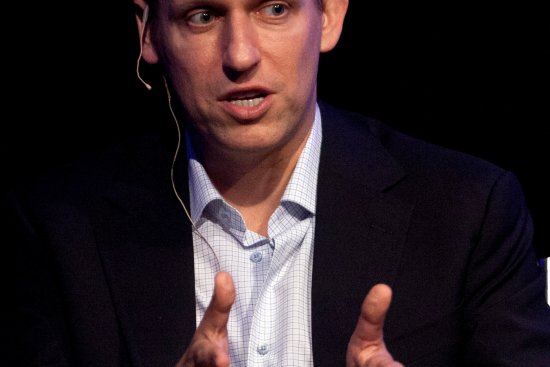
Stay open-minded and flexible
The best interview question — what important truth do very few people agree with you on?— is tough to answer. Just think about it for a second.
In his book Zero to One, Peter Thiel argues that it might be easier to start with what everyone seems to agree on and go until you disagree.
If you can identify a delusional popular belief, you can find what lies hidden behind it: the contrarian truth.
Consider the proposition that companies should make money for their shareholders and not lose it. This seems self-evident, but it wasn’t so obvious to many in the late 90s. Remember back then? No loss was too big. (In my interview with Sanjay Bakshi he suggested that to some extent this still exists today.)
Making money? That was old school. In the late 1990s it was all about the new economy. Eyeballs first, profits later.
Conventional beliefs only ever come to appear arbitrary and wrong in retrospect; whenever one collapses, we call the old belief a bubble. But the distortions caused by bubbles don’t disappear when they pop. The internet craze of the ’90s was the biggest bubble since the crash of 1929, and the lessons learned afterward define and distort almost all thinking about technology today. The first step to thinking clearly is to question what we think we know about the past.
There’s really no need to rehash the 1990s in this article. You can google it. Or you can read the summary in chapter two of Zero to One.
Where things get interesting, at least in the thinking context, are the lessons we drew from the late 90s. Thiel says the following were lessons most commonly learned:
The entrepreneurs who stuck with Silicon Valley learned four big lessons from the dot-com crash that still guide business thinking today:
1. Make incremental advances. Grand visions inflated the bubble, so they should not be indulged. Anyone who claims to be able to do something great is suspect, and anyone who wants to change the world should be more humble. Small, incremental steps are the only safe path forward.
2. Stay lean and flexible. All companies must be “lean,” which is code for “unplanned.” You should not know what your business will do; planning is arrogant and inflexible. Instead you should try things out, “iterate,” and treat entrepreneurship as agnostic experimentation.
3. Improve on the competition. Don’t try to create a new market prematurely. The only way to know you have a real business is to start with an already existing customer, so you should build your company by improving on recognizable products already offered by successful competitors.
4. Focus on product, not sales. If your product requires advertising or salespeople to sell it, it’s not good enough: technology is primarily about product development, not distribution. Bubble-era advertising was obviously wasteful, so the only sustainable growth is viral growth.
These lessons, Thiel argues, are now dogma in the startup world. Ignore them at your peril and risk near certain failure. In fact, many private companies I’ve worked with have adopted the same view. Governments too are attempting to replicate these ‘facts’ — they have become conventional wisdom.
And yet … the opposites are probably just as true if not more correct.
1. It is better to risk boldness than triviality.
2. A bad plan is better than no plan.
3. Competitive markets destroy profits.
4. Sales matters just as much as product.
Such is the world of messy social science — hard and fast rules are difficult to come by, and frequently, good ideas lose value as they gain popularity. (This is the “everyone on their tip-toes at a parade” idea.) Just as importantly, what starts as a good hand tends to be overplayed by man-with-a-hammer types.
And so the lessons which have been culled from the tech crash are not necessarily wrong, they are just context-dependent. It is hard to generalize with them.
According to Thiel, we must learn to use our brains as well as our genitals:
We still need new technology, and we may even need some 1999-style hubris and exuberance to get it. To build the next generation of companies, we must abandon the dogmas created after the crash. That doesn’t mean the opposite ideas are automatically true: you can’t escape the madness of crowds by dogmatically rejecting them. Instead ask yourself: how much of what you know about business is shaped by mistaken reactions to past mistakes? The most contrarian thing of all is not to oppose the crowd but to think for yourself.
In a nutshell, when everyone learns the same lessons, applying them to the point of religious devotion, there can be opportunity in the opposite. If everyone is thinking the same thing, no one is really thinking.
As Alfred Sloan, the heroic former CEO of General Motors, once put it:

This piece originally appeared on Farnam Street.
Join over 60,000 readers and get a free weekly update via email here.
TIME Ideas hosts the world's leading voices, providing commentary on events in news, society, and culture. We welcome outside contributions. Opinions expressed do not necessarily reflect the views of TIME editors.